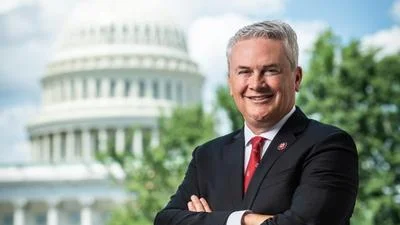Chairman Touts Historic $65 Billion Broadband Investment Included in Bipartisan Infrastructure Law
Energy and Commerce Chairman Frank Pallone, Jr. (D-NJ) delivered the following opening remarks today at a Communications and Technology Subcommittee hearing titled, “Connecting America: Oversight of NTIA:”
Today, the Committee is conducting important oversight of the National Telecommunications and Information Administration—or NTIA. I would venture to guess that most Americans have never heard of NTIA, but the agency plays a crucial role in connecting Americans.
I’m pleased President Biden has prioritized the agency’s role by appointing Alan Davidson as Administrator. It was unfortunate that during the majority of the Trump Administration, NTIA did not have a politically appointed leader. Administrator Davidson’s leadership is going to be critical as NTIA is poised to deliver on one of the most important economic and equity issues of the day—universal access to robust and affordable broadband service.
Broadband internet is not a luxury, it is a necessity. It’s needed for Americans to do their jobs, run their small businesses, study for school, meet with their doctor for a telehealth visit, and connect with family and friends. Unfortunately, studies estimate that as many as 30 million Americans are still without home broadband internet access. Members of this Committee—on both sides of the aisle—have for years discussed ways to address this issue so that everyone can take part in today’s digital society.
In November, Congress and President Biden delivered for the American people with the Bipartisan Infrastructure Law that included a historic $65 billion investment in broadband programs. This funding will support the cost of building these networks into rural and underserved communities—including Tribal communities— so that they can finally benefit from the economic and educational opportunities they deserve. This investment will ensure every American has access to reliable high-speed internet.
Affordability is also an issue when it comes to broadband access and the Bipartisan Infrastructure Law tackles it in different ways. Most notably, it created the Affordable Connectivity Program (ACP) at the Federal Communications Commission (FCC). Under the ACP, one in four American households are now eligible to receive a discount of $30 every month on their internet bill or $75 a month for people living on Tribal lands.
The law also requires providers that receive money from the Broadband Equity, Access, and Deployment Program at NTIA to offer a low-cost service plan for low-income Americans. Through these efforts and others, we need to make sure that affordability is not a barrier to universal connectivity because broadband is so essential.
Finally, the Bipartisan Infrastructure Law also includes digital equity funding to help ensure that people have the skills and tools they need to connect when they have access.
Beyond the positive impacts to individuals and communities, this investment is also critical to ensuring that America’s economy can successfully compete on the world stage. You only need to look at the enormous investments China has made in fiber, putting it on track to connect more than a billion people to broadband. We cannot allow other nations to get ahead of us in building the economy of the future.
While NTIA’s work of implementing the programs within its purview is only just beginning, the agency also is administering the programs we enacted on a bipartisan basis in the Consolidated Appropriations Act in 2021.
I look forward to getting an update on all of these investments today as NTIA continues its monumental work of connecting America.
Congress has also tasked NTIA with the important responsibility of managing federal spectrum users and coordinating with the FCC to ensure that our airwaves are effectively managed between federal and commercial users. Sadly, during the Trump Administration, that responsibility was ignored and resulted in unnecessary and counterproductive public fights in multiple spectrum bands, including the C-Band.
I am hopeful that with new leadership at NTIA, we will move past these public spectrum disputes. And instead, rely on the work of the expert agencies, in coordination with their federal partners, to reach decisions that serve the public’s interests.
I was pleased to see yesterday that Administrator Davidson and FCC Chairwoman Rosenworcel moved to update their spectrum Memorandum of Understanding, consistent with legislation this Committee unanimously reported to the House back in November. This is an important step to get this country’s management of its airwaves back on track.
I also believe that rolling out a national spectrum strategy will better position NTIA to ensure that federal government is coordinated with respect to our airwaves. This will help provide consumers, commercial carriers, and federal agencies with the spectrum resources they need now and for the foreseeable future.
There is a lot for us to discuss today as we continue our important work on connecting America. I welcome Administrator Davidson to the Committee and look forward to hearing from him.









